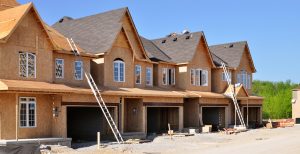Weak Economic Recovery Dragged by Slow Housing Market; Millennials “Share” Part of the Blame
Fri Mar 31, 2017 by Oppenheim Law on Roy Oppenheim

It’s no secret that a strong housing market is an essential part of any well balanced economy. Earlier this week, The Wall Street Journal presented troublesome figures on home buying and housing-related spending. This gave us insight, primarily citing strict credit standards, as to why the U.S. economy has not had a meaningful bounce-back as in previous post-recession recoveries. In this economic climate, one demographic, the millennials, are setting the stage for the emerging “sharing economy,” which prioritizes the idea of access over ownership.
With decades of inflation, its effect on housing and starting salaries has been particularly problematic for millennials. It has created an environment of higher student loan debt (currently at an average of $20,926) and higher housing prices while having a minimal correlation to the lower starting salaries millennials face. More than a third of millennials are plagued by student loan debt and lacking the industry minimum credit scores and credit histories. They have carried the growing trend of “on-demand” services, such as Uber and Lyft, into the housing market with Airbnb. With unaffordable down payments, insufficient income to meet monthly payments and too much debt, millennials (who now exceed the number of baby boomers) are not spending money on housing and housing-related products with the aim of ownership because it is not economically feasible. Instead, before buying, they are renting for longer periods which stand at a median of six years compared with a median of five years for renters in 1980. Therefore, the growing influence of the millennial mindset cannot be dismissed as “for rent” but instead is here to stay when it comes to their impact on the sluggish rebounding U.S. economy.
From the trenches,
Roy Oppenheim


[…] but were kids at the time of the Great Recession, behave differently compared to their parents and “share part of the blame in the weak economic recovery” after the […]
[…] but were kids at the time of the Great Recession, behave differently compared to their parents and “share part of the blame in the weak economic recovery” after the […]
[…] but were kids at the time of the Great Recession, behave differently compared to their parents and “share part of the blame in the weak economic recovery” after the […]
[…] but were kids at the time of the Great Recession, behave differently compared to their parents and “share part of the blame in the weak economic recovery” after the […]
[…] but were kids at the time of the Great Recession, behave differently compared to their parents and “share part of the blame in the weak economic recovery” after the […]